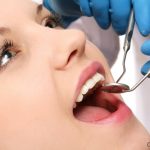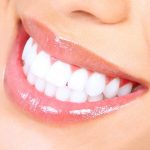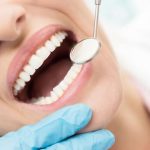Quick Recovery: How Soon Can You Eat After Wisdom Teeth Removal?
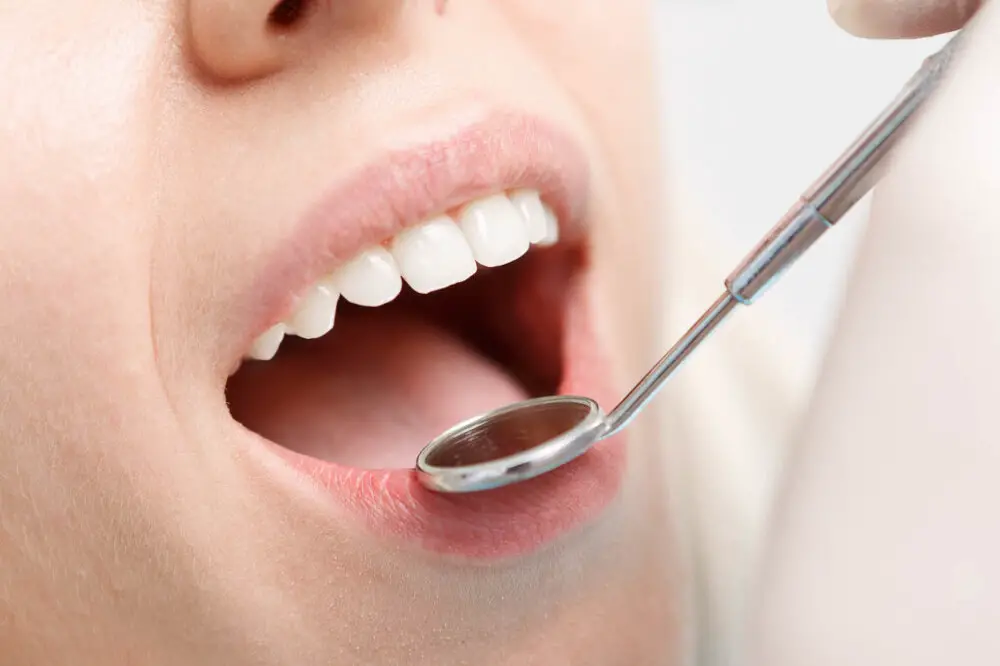
Wisdom teeth removal is a common dental procedure that many people undergo during their lifetime. While it is a routine surgery, the recovery period can be a bit challenging, especially when it comes to eating. After the surgery, your mouth will be sensitive, swollen, and sore, making it difficult to eat or drink anything. However, the good news is that with the right care and precautions, you can speed up the recovery process and resume your normal eating habits in no time. One of the most common questions that people have after wisdom teeth removal is how soon they can eat. The answer to this question depends on various factors, including the complexity of the surgery, the number of teeth removed, and your overall health. In general, dentists recommend that you wait at least 24 hours before eating solid foods. During this time, it is best to stick to a soft and liquid diet to avoid any complications. However, it is crucial to remember that everyone’s recovery is different, and it is essential to listen to your body and follow your dentist’s instructions for a quick and successful recovery.
Wisdom teeth removal is a surgical procedure that is performed when the third molars, commonly known as wisdom teeth, do not have enough space to grow properly or are causing oral health problems. These teeth typically emerge during the late teenage years or early adulthood, and often cause pain, infection, or damage to adjacent teeth when they are impacted or partially erupted. Wisdom teeth removal is a necessary procedure to prevent further complications and maintain oral health. The procedure is usually performed under local or general anesthesia, depending on the complexity of the case, and involves extracting the affected teeth from the jawbone. Recovery time varies depending on the individual and can range from a few days to several weeks, during which time it is important to follow post-operative instructions carefully to ensure proper healing.
Proper aftercare is crucial to ensure quick recovery after wisdom teeth removal. Following the removal of wisdom teeth, it is important to take care of the surgical area to prevent bleeding, swelling, and infection. To avoid any complications, patients should avoid smoking, drinking through a straw, and consuming hard or crunchy foods for several days after the procedure. Patients should also maintain good oral hygiene by brushing teeth gently and avoiding the surgical area. Applying ice packs to the cheeks can help reduce swelling, while taking pain medication as directed can help manage any discomfort. By following these aftercare instructions, patients can promote healing and return to their normal routine as soon as possible.
First Few Hours After Surgery

The first few hours after surgery can be a bit challenging, especially when it comes to eating. It is important to remember that your body needs time to heal, and you should avoid eating anything for at least the first two hours after your surgery. After this time, you can start with light, cool liquids such as water, apple juice, or sports drinks. It is important to avoid using a straw as the sucking motion can dislodge the blood clot and delay your healing process. You can also try eating soft foods such as yogurt, mashed potatoes, or pudding. These foods are easy to swallow and won’t put any pressure on your surgical site. Avoid hot, spicy, or acidic foods as they can irritate your mouth and cause discomfort. Remember to take your medications as prescribed by your dentist or oral surgeon to help manage any pain or discomfort during this time. It is essential to take the necessary precautions during the first few hours after your surgery to ensure a quick and successful recovery. Rest is crucial during this time, and you should avoid any strenuous activities. You should also avoid smoking or using tobacco products as they can delay your healing process. If you experience any excessive bleeding or swelling, contact your dentist or oral surgeon immediately. It is normal to experience some discomfort and swelling after surgery, but these symptoms should subside within a few days. Remember to follow your dentist or oral surgeon’s post-operative instructions carefully to ensure a speedy and comfortable recovery. With proper care and attention, you can enjoy a quick and easy recovery after your wisdom teeth removal surgery.
Eating is not recommended during the post-operative period of wisdom teeth removal due to several reasons. Firstly, eating can cause pressure on the surgical site, which can dislodge the blood clot that forms to promote healing, leading to a painful condition called dry socket. Secondly, the act of chewing can irritate and damage the surgical site, which can delay the healing process and increase the risk of infection. Additionally, certain foods such as crunchy, spicy, acidic, or hard foods can cause discomfort, pain, or even bleeding in the surgical site. Therefore, it is essential to follow the surgeon’s instructions and avoid eating until the appropriate time to ensure a smooth and speedy recovery.
If you are looking for alternatives to hydrate and provide nutrients to your body after wisdom teeth removal, there are several options available. One option is to consume clear liquids such as water, coconut water, and clear broths. These liquids can help to keep your body hydrated and provide essential nutrients. Another alternative is to consume soft foods such as mashed potatoes, smoothies, and soups. These foods are easy to consume and can provide the necessary nutrients to promote healing and recovery. Additionally, you can consider taking supplements such as vitamin C and zinc to boost your immune system and aid in healing. Remember to consult with your dentist or healthcare provider before making any significant changes to your diet following a dental procedure.
Following the dentist’s instructions after wisdom teeth removal is crucial for a quick and successful recovery. It is essential to avoid any complications that can arise from not following the aftercare instructions. The dentist may suggest avoiding certain foods or drinks, such as alcohol, hot or spicy foods, and carbonated drinks, that can delay the healing process or cause pain and discomfort. It is also important to maintain proper oral hygiene, such as rinsing the mouth with saltwater and brushing gently, to prevent infection and promote healing. Ignoring the dentist’s instructions can lead to more significant problems, such as dry socket, which can result in severe pain and require additional treatment. Therefore, it is essential to adhere to the instructions to ensure a smooth and speedy recovery.
First Few Days After Surgery

The first few days after surgery can be challenging and uncomfortable for those who have undergone wisdom teeth removal. It is important to follow the post-operative instructions given by the dentist to ensure quick recovery. Immediately after surgery, patients may experience bleeding from the surgical site. It is recommended to change the gauze pads every hour and avoid spitting excessively to prevent blood clots from being dislodged. Swelling is also common during the first few days after surgery. Applying ice packs to the face can help reduce swelling and discomfort. It is also important to avoid smoking, as it can delay the healing process. Patients should only consume soft foods and avoid using straws for the first few days to ensure proper healing of the surgical site. Pain medication may be prescribed to relieve any discomfort. As the days progress, patients may experience a decrease in swelling and discomfort. It is important to continue with the prescribed medication and follow the post-operative instructions given by the dentist. Patients can gradually begin to introduce solid foods into their diet as long as they are comfortable doing so. It is still important to avoid using straws and to chew on the opposite side of the surgical site to prevent any damage. It is also important to maintain proper oral hygiene by gently brushing and flossing the teeth while avoiding the surgical site. With proper care and attention, patients can expect a full recovery within a few weeks after surgery.
A soft food diet is typically recommended after wisdom teeth removal to promote healing and prevent discomfort. This type of diet consists of foods that are easy to chew and swallow, such as pureed vegetables, soups, smoothies, and mashed potatoes. Soft foods are important because they reduce the risk of damaging the surgical site and help to minimize pain and swelling. Additionally, a soft food diet provides the necessary nutrients for the body to recover quickly and efficiently after surgery. It is recommended to follow a soft food diet for at least a few days after wisdom teeth removal to ensure optimal healing and minimize discomfort.
After having your wisdom teeth removed, it’s important to stick to a soft food diet to avoid any complications. Some recommended soft foods include mashed potatoes, smoothies, yogurt, scrambled eggs, oatmeal, soup, and applesauce. These foods are easy to chew and swallow, and won’t cause any irritation or pain to the healing area. It’s important to avoid any crunchy or hard foods, such as chips or nuts, as they can cause discomfort and even damage to the healing area. It’s also important to stay hydrated and drink plenty of water, and avoid any hot or spicy foods that may cause irritation. Following a soft food diet can help speed up the healing process and ensure a quick recovery.
After wisdom teeth removal surgery, it is important to avoid certain foods that could cause irritation or damage to the healing area. Hard, crunchy, or sticky foods should be avoided as they can get lodged in the extraction site and disrupt the healing process. Foods such as nuts, chips, popcorn, and chewing gum should be avoided for at least a week after the procedure. Additionally, spicy or acidic foods can also cause discomfort and irritation to the healing area. It is best to stick to soft, easy-to-chew foods like soups, mashed potatoes, smoothies, and yogurt until the area has fully healed. Adequate nutrition is important for a quick recovery, so a balanced diet should be maintained with soft foods until the patient is able to tolerate solid foods comfortably.
Avoiding straws and smoking is crucial for a quick recovery after wisdom teeth removal. Using straws can create suction in the mouth, which may dislodge blood clots and delay the healing process. Smoking, on the other hand, can hinder the body’s natural healing abilities and increase the risk of complications such as dry socket, infection, and delayed healing. Additionally, smoking can also cause a decrease in blood flow, leading to slower healing times and potential complications. Therefore, it is highly recommended to stay away from straws and smoking for at least a week after wisdom teeth removal to ensure a smooth and speedy recovery.
After First Week
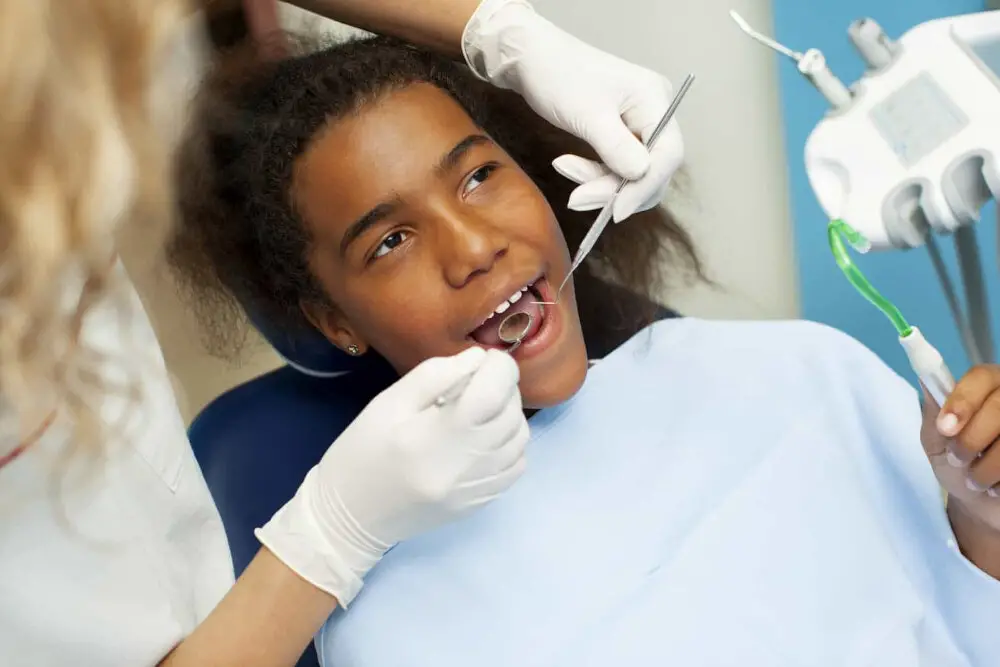
After the first week of wisdom teeth removal, patients typically experience a significant improvement in their recovery. The initial discomfort, swelling, and bleeding that are common after the procedure will have subsided, and patients may begin to feel more comfortable eating solid foods. However, it is important to continue to exercise caution and be mindful of any pain or discomfort while eating. During this stage of recovery, patients may gradually reintroduce solid foods into their diet. Soft foods such as mashed potatoes, scrambled eggs, and soup are often recommended during the first few days after surgery, but after the first week, patients may begin to incorporate more solid foods into their diet. It is important to avoid hard, crunchy, or sticky foods that may disrupt the healing process. Additionally, patients should continue to rinse their mouth with salt water and maintain good oral hygiene to prevent infection and promote healing. By following these guidelines, patients can continue to progress in their recovery and return to their normal diet in a safe and timely manner.
After wisdom teeth removal, it is important to gradually return to normal eating habits to prevent complications. During the first few days, it is recommended to consume only liquids or soft foods to give time for the surgical site to heal. After that, patients can slowly introduce solid foods that are easy to chew and swallow. It is crucial to avoid crunchy, spicy, or acidic foods that can irritate the wound, as well as hot drinks that can dissolve the blood clot and cause bleeding. Gradually increasing the variety of foods and textures in the diet will allow the mouth to heal properly and reduce discomfort. It is also important to maintain good oral hygiene by gently brushing and rinsing the mouth after eating to prevent infection.
When it comes to foods to introduce first after wisdom teeth removal, it’s important to stick to soft, easy-to-chew options that won’t irritate the extraction site. Some good choices include mashed potatoes, soup, scrambled eggs, smoothies, and applesauce. It’s also important to avoid hot or spicy foods, as well as crunchy or hard foods like chips or nuts, which could potentially dislodge the blood clot and impede the healing process. To ensure safe consumption, be sure to take small bites and chew with your front teeth, avoiding the extraction site. Additionally, it’s important to stay hydrated and avoid using straws for the first few days to prevent dry socket. By following these guidelines, you can help ensure a smooth and speedy recovery after wisdom teeth removal.
After wisdom teeth removal, it is crucial to avoid crunchy and hard foods for a longer period of time to ensure quick recovery. These types of foods can cause irritation and damage to the surgical site, leading to bleeding and inflammation. Furthermore, hard and crunchy foods require more force and pressure to chew, which can strain the jaw muscles and slow down the healing process. It is best to stick to soft and easily digestible foods like smoothies, soups, and mashed potatoes for at least the first few days after the procedure. This will allow the tissues to heal properly and reduce the risk of complications, ultimately leading to a faster and smoother recovery.
After wisdom teeth removal, it is crucial to continue rinsing your mouth and keeping the area clean to ensure a quick recovery. Failure to do so can result in infection, prolonging the healing time and causing unnecessary pain. Rinsing your mouth with saltwater or prescribed mouthwash helps to remove any food particles or bacteria that may be present in the area, reducing the risk of infection. Additionally, keeping the area clean by gently brushing your teeth and avoiding foods that could get stuck in the extraction site also helps to promote healing. By maintaining good oral hygiene practices, you can ensure a faster recovery and get back to your normal routine as soon as possible.
Signs of Complications

After a wisdom teeth removal procedure, it is important to watch out for any signs of complications to ensure a smooth and speedy recovery. One of the most common complications after wisdom teeth extraction is dry socket. This occurs when the blood clot that forms in the socket where the tooth was removed becomes dislodged or dissolves before the wound has a chance to heal. Signs of dry socket include severe pain that radiates to the ear and neck, a bad taste in the mouth, and bad breath. If you experience any of these symptoms, it is important to contact your dentist or oral surgeon immediately for treatment. Another potential complication after wisdom teeth removal is infection. Signs of infection include swelling and redness around the extraction site, fever, and difficulty opening your mouth. In some cases, an infection may require antibiotics to treat. It is important to follow post-operative instructions closely, including taking any prescribed medications as directed and keeping the extraction site clean to reduce the risk of infection. If you notice any signs of infection, contact your dentist or oral surgeon right away for evaluation and treatment. By being vigilant and proactive in monitoring for signs of complications, you can help ensure a smooth and successful recovery after wisdom teeth removal.
It is essential to be aware of the potential complications that may arise after wisdom teeth removal. These complications include excessive bleeding, infection, nerve damage, and dry socket. Excessive bleeding can occur immediately after the procedure or a few days later. Symptoms of infection may include fever, swelling, and pain that persists despite pain medication. Nerve damage can result in numbness or tingling of the tongue, lips, or chin. Dry socket, which is the most common complication, occurs when the blood clot that forms in the socket is dislodged, exposing the bone and nerves, resulting in severe pain. If any of these complications occur, it is crucial to contact your dentist for further evaluation and treatment.
After wisdom teeth removal, it is essential to monitor any symptoms of dry socket, infection, or other issues. Dry socket is a condition that occurs when the blood clot that forms in the socket where the tooth was removed dislodges or dissolves, exposing the bone and nerves, causing severe pain. Infection can also occur, which may cause fever, swelling, and redness around the surgical site. Other issues that may arise include bleeding, numbness, and difficulty opening the mouth. It is important to contact your dentist or oral surgeon immediately if you experience any of these symptoms to avoid further complications and ensure a quick recovery.
It is crucial to contact your dentist if any of the signs such as severe pain, excessive bleeding, infection, or swelling appear after wisdom teeth removal. Delaying treatment can lead to complications and can prolong the healing process. The dentist can provide a proper diagnosis and suggest the appropriate treatment to alleviate discomfort and prevent further problems. Seeking professional help can also prevent the development of dry socket, a painful condition that occurs when the blood clot protecting the bone is dislodged. Therefore, it is essential to keep a close eye on any unusual symptoms and contact your dentist immediately to ensure a quick and smooth recovery.
Following aftercare instructions is crucial for a successful recovery after wisdom teeth removal. These instructions are designed to prevent complications such as infection, bleeding, and dry socket. It is important to stick to the recommended diet and avoid chewing hard or crunchy foods until the extraction site has fully healed. Failure to follow the aftercare instructions can result in prolonged healing time, pain, and discomfort. It is also essential to keep the extraction site clean and to avoid smoking, using straws, or engaging in vigorous physical activity for a few days after the procedure. By following the aftercare instructions, patients can ensure a quick and smooth recovery, allowing them to return to their normal activities as soon as possible.
After undergoing wisdom teeth removal surgery, it’s essential to follow a specific timeline for returning to your normal diet. It is recommended to start with clear liquids and then progress to soft foods. After 24 hours, you can introduce soft foods that require minimal chewing, such as mashed potatoes, soup, and scrambled eggs. Then, after three to four days, you can start to introduce solid foods that are easy to chew, like pasta and steamed vegetables. It’s crucial to avoid hard, crunchy, or sticky foods for at least a week after surgery, as they can irritate the surgery site and delay the healing process. Following this suggested timeline for returning to your normal diet will help to ensure a quick and pain-free recovery.
After wisdom teeth removal, it is essential to take proper care of oneself to ensure a quick and safe recovery. This includes following the post-operative instructions provided by the dentist or oral surgeon, such as avoiding smoking and using straws, as well as maintaining good oral hygiene practices. It is also important to stick to a soft food diet for a few days and gradually reintroduce solid foods as the healing process progresses. Adequate rest and hydration are crucial for a speedy recovery, and any discomfort or pain can be managed with over-the-counter pain relievers or prescribed medication. By taking these measures, patients can minimize the risk of complications and ensure a smooth recovery process.
Conclusion
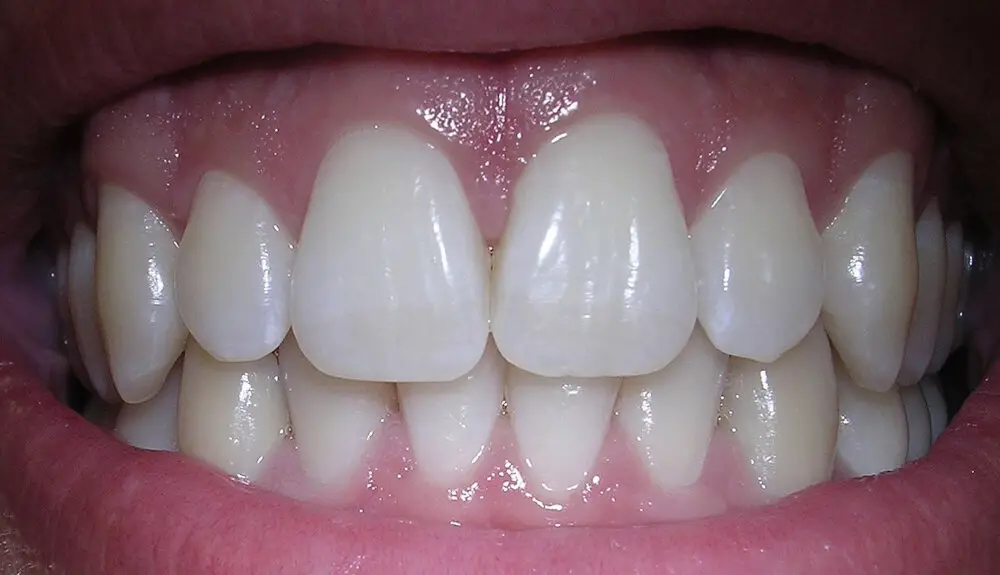
In conclusion, the recovery period after wisdom teeth removal can be a challenging and uncomfortable experience. However, it is crucial to follow your dentist’s instructions and take good care of yourself during this time. While it is essential to wait a few hours before eating after the procedure, it is also important to choose the right foods that are easy to chew and swallow. Soft, nutrient-rich foods like soup, mashed potatoes, and smoothies can help speed up the healing process and give your body the energy it needs to recover. Remember to avoid hard, crunchy, or spicy foods for at least a week after the surgery, and be gentle with your mouth when brushing and flossing. With proper care and patience, you can expect to recover quickly and return to your normal eating habits in no time.
